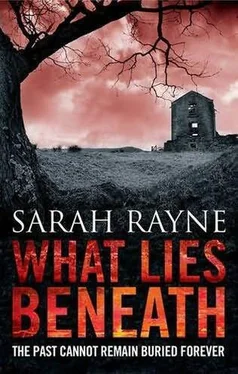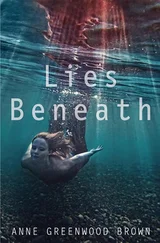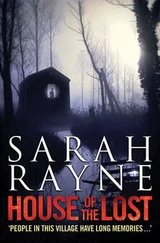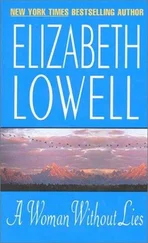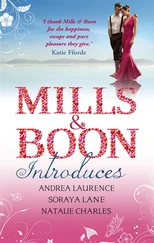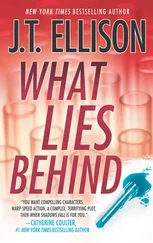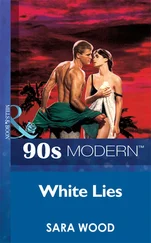‘Yes, I see. Thank you for telling me.’ I got off the window seat. ‘I’ll go and find Crispian now, if you don’t mind, sir,’ I said. ‘We were going down to the lake.’
It was nice by the lake that day. Sunlight glinted on the water and we skimmed stones across the surface, competing to see who could skim the furthest. Crispian had no idea what had just happened; I don’t think he ever found out.
We made plans for fishing in the lake and thought we might even be allowed to swim in it, although Crispian said it might be too muddy and choked up with weeds. And all the time I was seeing that terrible face and the reaching hand with the scars and sores.
I think she did die that night, my mother, because I awoke in the middle of the night and heard hurrying footsteps and the murmur of voices. But in the morning everything was exactly as it always was, and I never knew when they took her body away or where they buried her. I never knew, either, if the other people in the house – Julius and my Aunt Serena and Flagg and his wife – knew she was there, but I suppose they must have done. I can’t see how Colm could have coped otherwise.
It wasn’t until I was thirteen that I realized my mother had not been confused over the names that day at all. She had said Julius must be proud of me, and she really had meant Julius, not Colm.
It was Christmas Eve when I found out the truth. There was a houseful of guests at Cadence Manor. Julius liked giving big house parties and he was a jovial and generous host; in fairness I have to say that about him. One of the men made a vaguely bawdy remark, which Crispian and I were not meant to overhear, about it being a wise man who knew his own offspring.
‘And I dare say Julius, old rascal, has one or two colts not in the stud book,’ he said, and somebody else responded with a remark about not housing them in your own stable. There was some half-embarrassed, half-sniggering laughter.
Something clicked inside my head, and the next morning I asked Julius about it. ‘Sir, I’ve been putting a few facts together,’ I said politely. ‘And I’d very much like it if you could reassure me about something.’
‘Yes?’
‘I’ve got it into my head that Colm Cadence might not be my father.’
There was a very long pause. Then he said, ‘I can’t reassure you, Jamie. He isn’t your father.’
‘Yes, I see. I thought he wasn’t. You’re my father, aren’t you, sir?’
He took a bit longer to answer this time. Then he said, ‘Yes, I am.’
It was the truth, pure and simple, although as Oscar Wilde (I think it was Wilde anyway) said in one of his plays, the truth is rarely pure, and never simple.
‘How did you know?’ he said.
‘Oh,’ I said, deliberately vaguely, ‘just one or two things I heard.’
‘I see. Well, I hoped you’d never suspect, Jamie, and I certainly hoped you’d never ask me that question. But I promised your mother if you ever did, then I would answer you truthfully.’
And that was when he handed me all that rubbish about them having been so intensely in love they hadn’t been able to help themselves, and how Colm had been impotent. He didn’t put it quite like that about Colm – he might even have thought that at thirteen I wouldn’t understand. I understood perfectly well, of course. No one who went to a boys’ boarding school and shared a dormitory with ten others was ignorant of the basic facts of life by the age of thirteen, and in a good many cases a lot younger than thirteen. So I was quite clear as to what he meant.
But I sat politely in his study for the next half-hour and listened to him telling me how lovely and sinless and warm my mother had been, and how painful it had been to end the romance, and I thought: you bloody lusting old hypocrite.
But there was one other question I had to ask, and I have to be honest and record that this, really, was the main thing I wanted to know.
‘Sir, since I’m your son as much as Crispian, does that mean I’ll one day own Cadences with him?’
‘Oh, no,’ he said at once. Instant reaction, immediate rebuttal. I think I hated him more at that moment than at any other.
‘Oh, no, Jamie,’ he said again. ‘I’m sorry, but that isn’t how things work. Crispian’s my legitimate son. My heir. I’ll make sure you’re looked after, of course, but you won’t inherit Cadences.’
‘I see,’ I said. ‘Thank you anyway, sir.’
So there it was. I was Julius’s son as much as Crispian but I wasn’t going to get what Crispian would get. The banking house, Cadence Manor, the money and the power.
Unless, of course, Crispian were to die. That was the thought that came, unbidden, into my mind and, once there, it stuck. I thought, if Crispian were no longer here, I’d have everything. There’d be no one else to inherit it. I’d be the obvious heir and no one would raise an eyebrow.
The lake at Cadence Manor has long since dried out, but in those days it was quite deep. We had already made plans for fishing and swimming at Easter, and I was careful to make regular mention of them – of how I was going to ask for fishing rods for my birthday next February so we could try them out. And, of course, whatever I had, Crispian had as well.
It was easy to push him into the lake. I did it clumsily and inefficiently, and all that happened was that he was drenched. He got out almost at once, of course, and I pretended I had slipped on a patch of mud and knocked into him. I cried so they would think I was ashamed and remorseful at what had happened.
I wasn’t ashamed or remorseful at all. I was furious because Crispian hadn’t drowned. It was my first attempt to murder him. But as you know by now, my unknown reader, it wasn’t my last.
These were the memories that coursed through my mind in the infirmary inside Edirne. The clearest was how the veil had slipped from my mother’s face that day, and how I had run sobbing from the room. It never faded, that memory.
But it wasn’t until I saw the same marks on Julius’s face that I realized my mother must have died from syphilis. It was a scaldingly bad thought, but it explained why she had been hidden away all those years. Not just vanity, although I dare say that came into it, but shame. The shame of having contracted a sexual disease, although whether she got it from Julius or he got it from her, I have no idea.
And here’s the real agony: it’s a disease that can be inherited. Not always and not necessarily severely. But if the mother has syphilis during pregnancy there’s a strong danger of the child displaying some symptoms. And when both parents have it…
It doesn’t always mark the face, syphilis. Sometimes it marks the mind. Like a smeary pawprint of black disease stamped into the brain. Distorting it and dredging up darknesses.
Darknesses. You can see, can’t you, why I hated my mother and my real father so much?
It was later that night when the Pasha called everyone inside the fortress together and told them that the siege of Edirne was likely to continue for sometime yet. I wasn’t among the people. Even if I had been pronounced fit to leave my room I would have stayed away because I didn’t want to face anyone. But Crispian and Gil were there, and Raif had interpreted the gist of the speech for them. Boiled down to the bones, it meant that Edirne remained an island of resistance, and was still being attacked by the Bulgarians, who were determined to possess the ancient Ottoman capital.
Supplies were dwindling, but the Pasha had pledged that in the event of a siege, the fortress would not surrender for a period of fifty days. God knows why fifty, as opposed to any other number, but that’s what he said.
‘So,’ said Crispian, ‘we’re stuck here for a good while yet.’
Читать дальше
